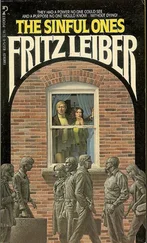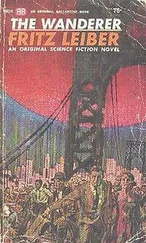Fritz Leiber - The Best of Fritz Leiber
Здесь есть возможность читать онлайн «Fritz Leiber - The Best of Fritz Leiber» весь текст электронной книги совершенно бесплатно (целиком полную версию без сокращений). В некоторых случаях можно слушать аудио, скачать через торрент в формате fb2 и присутствует краткое содержание. Жанр: Фантастика и фэнтези, на английском языке. Описание произведения, (предисловие) а так же отзывы посетителей доступны на портале библиотеки ЛибКат.
- Название:The Best of Fritz Leiber
- Автор:
- Жанр:
- Год:неизвестен
- ISBN:нет данных
- Рейтинг книги:3 / 5. Голосов: 1
-
Избранное:Добавить в избранное
- Отзывы:
-
Ваша оценка:
- 60
- 1
- 2
- 3
- 4
- 5
The Best of Fritz Leiber: краткое содержание, описание и аннотация
Предлагаем к чтению аннотацию, описание, краткое содержание или предисловие (зависит от того, что написал сам автор книги «The Best of Fritz Leiber»). Если вы не нашли необходимую информацию о книге — напишите в комментариях, мы постараемся отыскать её.
The Best of Fritz Leiber — читать онлайн бесплатно полную книгу (весь текст) целиком
Ниже представлен текст книги, разбитый по страницам. Система сохранения места последней прочитанной страницы, позволяет с удобством читать онлайн бесплатно книгу «The Best of Fritz Leiber», без необходимости каждый раз заново искать на чём Вы остановились. Поставьте закладку, и сможете в любой момент перейти на страницу, на которой закончили чтение.
Интервал:
Закладка:
The Best of Fritz Leiber
by Fritz Leiber
The Wizard of Nehwon
WHEN I was first asked to write an introduction to a volume of Fritz Leiber stories—the most important of such collections at that—my reaction was inappropriately inelegant: “Huh?” I still think it had a fundamental tightness. How can anybody properly comment on the work of one who is not only his senior in the profession by a good many years, but is universally acknowledged to be among its three or four all-time titans?
Yet this was an honor I could not decline. It was like being in a physics department back around 1935 and invited to introduce a series of guest lectures by Einstein. A person hi that position realizes the audience hasn’t come to hear, or read, him. But he’ll try to avoid boring platitudes. If he’s lucky, he’ll even convey a slight extra insight, which will help that audience appreciate the visitor and what he’ll say a little bit more than they might otherwise have done. Maybe I’ll luck out.
Let’s first make a few remarks about the man himself, before going on to his writing. They will be only a few—despite the keyhole school of criticism, the facts of a creator’s life are not required for an understanding of his or her work; or if they are, then that person has to that extent failed as an artist.
Fritz Leiber does employ a certain amount of autobiography hi his work, perhaps more than any other maker of science fiction or fantasy. But he’s far too skillful for you to need to know what the personal element is. Besides, he lets you in on some of it himself, for your pleasure, in his afterword to the present volume.
And I can’t claim deep knowledge of him in any event. We have been friends for a long time, guests in each other’s homes, and so on; but until recently, geographical separation prevented frequent encounters, and we never happened to strike up one of his extended correspondences which have delighted a number of people. Therefore, a mere scattering of reminiscences and data:
I first met Fritz Leiber at the 1949 world science fiction convention in Cincinnati. The author of such cornerstone tales as Gather, Darkness ! and Conjure Wife seemed even more awe-inspiring In person, towering, classically handsome, altogether theatrical. The last of these qualities was not deliberate— rather, he was conventionally clad and soft-spoken—but he couldn’t help it; personality will come through. He talked to me, a beginner with half a dozen stories in print, as graciously as he did to the biggest-name writer or editor present, or the humblest fan. Here “graciously” is used in an exact sense which is best defined by an example.
From time to time we are all afflicted with bores or boors. Some of us give them the brutal brush-off; most of us suffer them for a short while, then escape on a mumbled excuse. Fritz Leiber has repeatedly been seen to listen to such characters, respond to them, actively, sympathetically, and patiently enough that they never suspect the toleration. He cannot have an enemy in the world; instead, there is a worldful of people who all hope to be worthy of his friendship.
It is etymologically wrong but psychologically right to define a gentleman as one who is gentle, yet very much a man. Leiber has been a championship fencer and a chess player rated “expert.” To see and hear him recite Chesterton’s bravura “Lepanto” is an unforgettable experience. And, of course, in his writing he has stared down— or laughed down—death, horror, human absurdity, with guts worthy of a Tetters, Kafka, or Cervantes.
Born in Chicago near the end of 1910, his father a famous Shakespearean actor for whom Fritz was
named, he grew up in the atmosphere of the stage, which doubtless has a great deal to do with the highly visual and dramatic quality of his work. But he took his degree in psychology, which also shows. Variously a lay preacher, actor, college teacher of drama, and staff writer for an encyclopedia, he tried free-lancing sporadically. His first published story appeared hi 1939, in that lustrous and mourned magazine Unknown. During World War II he reached a painful decision—that the struggle against fascism was more important than the pacifist convictions which he had long held, and still does—and he accepted a job in aircraft production. Afterward, he was on the staff of Science Digest for a dozen years. During all this time he acquired a wife and son and, between dry spells which readers regretted, wrote a lot of the best science fiction and fantasy in the business. Eventually he moved from Chicago to southern California and started writing full time. Since his wife’s death (everybody who knew her misses Jonquil) he has lived hi San Francisco.
So now Fritz Leiber is hi his sixties, an age when most artists have either retired or are sterilely repeating themselves. The years show on him a bit—but not too much, and only physically. Inside, while possessing all the wisdom of a lifetime, he’s younger than the average man of thirty. To give a small personal illustration: not long ago, in his rambles around his newly adopted city, he discovered a walking tour that will take you to every place where action occurs in Dashiell Hammett’s The Maltese Falcon. Or... recently my wife gave an elaborate dinner to honor the memory of E. R. Eddison, upon the date of Lessingham’s translation into Zimiamvia. Only those who would understand what that means were invited, and they were expected to come hi costume. Fritz graced the party as the oldest, most sharply humorous, and best-dressed man present.
If anything, he keeps growing younger, more actively creative. His past unproductive periods seem to have been times during which, consciously or unconsciously, he was preparing himself to strike out hi a different direction. The results were always surprising and consequential. Though ever aware of and sensitive to the great issues of the real world around him, he has never been a merely “relevant” writer. Instead, he has always been in the forefront in both themes and treatment. In these past several years we have been witnessing a new burst of pioneering, which looks as if it will continue while he lives. That makes especially appropriate the book, both retrospective and contemporary, which you are holding.
And it brings up our real subject, Fritz Leiber’s achievement.
I do not propose to offer you a critique. For one thing, while mildly disagreeing with a few of her judgments, I couldn’t better the one by Judith Merril. [1] In The Magazine of Fantasy and Science Fiction for July 1969, a special issue honoring Fritz Leiber. Previously, in November 1959, Fantastic had run an all-Leiber issue. These, and the awards voted him, indicate the esteem in which his work is held by those who know the field.
Besides, I lay no claim to being a critic, simply a working writer.
To be sure, that distinction is far from absolute. Thus Merril published excellent fiction in earlier days, while Leiber has done a certain amount of criticism. The question to consider is where the emphasis of a life—in this case Leiber’s—has lain—or, at least, what an essayist is trying to do. I’ll say little about the stories hi this volume. They speak for themselves; moreover, you have the author’s own notes. Rather, I’d like to consider in a very informal fashion, and from the viewpoint of a fellow practitioner, some of those items which are not on hand. You who already know them may enjoy a revival of memories. You who don’t may get a better idea of Leiber’s accomplishment and, I hope, will be led to read further.
It’s too bad that we have no tale of Fafhrd and the Gray Mouser here. Not only did that charming pair of rogues—the tall Northern barbarian and the small city-bred trickster—launch the author’s career; they are still going strong, to the joy of everybody who appreciates a rattling good fantasy adventure. But by no means are these stories conventional “sword and sorcery.” The world of Nehwon is made real in wondrously imaginative detail, its human aspects as true as in any conscientious job of reporting. To visit the city of Lankhmar is to learn what decadence in fact means; to roam with our vulnerable vagabonds is to experience pity and terror as well as suspense, wry humor, and uproarious hilarity. Here Leiber hi his way—like the late J. R. R. Tolkien in his, and not vastly different—has done, and is doing, for the heroic fantasy what Robert Louis Stevenson did for the pirate yarn: by originality and sheer writing genius, he revived an ossified genre and started it off on a fresh path.
Читать дальшеИнтервал:
Закладка:
Похожие книги на «The Best of Fritz Leiber»
Представляем Вашему вниманию похожие книги на «The Best of Fritz Leiber» списком для выбора. Мы отобрали схожую по названию и смыслу литературу в надежде предоставить читателям больше вариантов отыскать новые, интересные, ещё непрочитанные произведения.
Обсуждение, отзывы о книге «The Best of Fritz Leiber» и просто собственные мнения читателей. Оставьте ваши комментарии, напишите, что Вы думаете о произведении, его смысле или главных героях. Укажите что конкретно понравилось, а что нет, и почему Вы так считаете.









